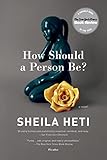
Of all of the wonderfully insightful Charlie Rose segments on books and writing, the one that sticks with me the most is the contentious 1996 debate between David Foster Wallace, Jonathan Franzen, and Mark Leyner about the current state of literature in America. Wallace was on the heels of Infinite Jest and Franzen was building up to his perfected synergy of the Midwestern America family after two well-received warmups that underperformed commercially. Leyner had a novel and a collection to his name, both of which were highly satirical while maintaining an aura of symbiotic self-consciousness. Wallace was on the cusp of canonization, a distinction Franzen would reach with his 2001 novel, The Corrections; Leyner continued to produce a steady stream of fictional and nonfictional oddities, like his collaboration with Dr. Billy Goldberg, Why Do Men Have Nipples?. And so while Franzen and Wallace need no introduction, Mark Leyner, a man who has spent a career experimenting with style, structure, and genre, seems comparatively under-loved. As Leyner himself bitterly points out in his latest novel, Gone with the Mind, he’s not included in Philip Roth’s “formidable postwar writers” in Roth’s 2014 interview The New York Times. As it happens, Gone with the Mind, is both the perfect introduction to Leyner’s work and demonstrative of the reasons it has languished in relative obscurity.


 Many readers feel a certain trepidation when they read fiction infused with factual anecdotes from an author’s life; these anxieties amplify when the writer literally injects his or her namesake into their fiction. This has been the central device of Mark Leyner’s writing throughout his 25-year career. His 1992 debut novel, Et Tu Babe, follows the life of the famous novelist, Mark Leyner. His sophomore romp, The Tetherballs of Bougainville depicts a lauded teenage screenwriter with the same name. For a writer who has made a career out of wry quips and flares of reality mixed with the imagined, Gone with the Mind is a culmination of these tendencies, more a gesticulation of satiric irony than cohesive narrative. Like all of Leyner’s categorical fiction, his latest book isn’t entirely upfront with its distinctions, either as a thinly veiled fiction or an elaborate farce.
Many readers feel a certain trepidation when they read fiction infused with factual anecdotes from an author’s life; these anxieties amplify when the writer literally injects his or her namesake into their fiction. This has been the central device of Mark Leyner’s writing throughout his 25-year career. His 1992 debut novel, Et Tu Babe, follows the life of the famous novelist, Mark Leyner. His sophomore romp, The Tetherballs of Bougainville depicts a lauded teenage screenwriter with the same name. For a writer who has made a career out of wry quips and flares of reality mixed with the imagined, Gone with the Mind is a culmination of these tendencies, more a gesticulation of satiric irony than cohesive narrative. Like all of Leyner’s categorical fiction, his latest book isn’t entirely upfront with its distinctions, either as a thinly veiled fiction or an elaborate farce.

 In his latest, Mark Leyner the character is the guest speaker at the “Nonfiction at the Food Court Reading Series.” The event is coordinated by his mother, who provides a lengthy introduction for her son at the beginning of the novel. He is there to read from his autobiography — a project that began as a first-person video game wherein the objective is to return to his mother’s womb — to a crowd of two: a Panda Express and Sbarro employee. The narrative is, ultimately, a novel-length speech. While at times it is focused, it frequently rambles on the composition of the fake book inside the metafiction. My experience reading the novel spawned an array of adjectives, often in the span of a few seconds. Absurd, juvenile, sophisticated, selfless, masturbatory, profound. That’s Mark Leyner, and he knows it:
In his latest, Mark Leyner the character is the guest speaker at the “Nonfiction at the Food Court Reading Series.” The event is coordinated by his mother, who provides a lengthy introduction for her son at the beginning of the novel. He is there to read from his autobiography — a project that began as a first-person video game wherein the objective is to return to his mother’s womb — to a crowd of two: a Panda Express and Sbarro employee. The narrative is, ultimately, a novel-length speech. While at times it is focused, it frequently rambles on the composition of the fake book inside the metafiction. My experience reading the novel spawned an array of adjectives, often in the span of a few seconds. Absurd, juvenile, sophisticated, selfless, masturbatory, profound. That’s Mark Leyner, and he knows it:
We (the Imaginary Intern and I) used to talk a lot about an olfactory art, some kind of postlinguistic, pheromonal medium that would be infinitely more nuanced than language (and without language’s representational deficiencies), a purely molecular syntax freed from all the associative patterns and encoded, ideological biases of language, that could produce the revelatory sensations of art by exciting chemosensory neurons instead of the ‘mind,’ that could jettison all the incumbent imperial narratives and finally get to something really nonfictional.


 Authors frequently insert themselves into their own novels, but they work in ways that keep the end product undeniably fiction. Philip Roth embodied his child self in The Plot Against America, but the premise of Charles Lindbergh defeating Franklin D. Roosevelt in the 1940 presidential election is purely fantasy. Ben Marcus rewound to his childhood in Notable American Women, which centers around behavioral modification and mind control. Other examples stray closer to the real. Jonathan Safran Foer (real) traveled to the Ukraine alongside American pop culture enthusiast Alexander Perchov (make-believe) in Everything is Illuminated. The voice, age, and background of Foer in his 2002 novel are largely synchronized with the author himself. The Pale King turned David Foster Wallace writer to David Wallace, one-time IRS agent. Douglas Coupland took the rare route of becoming a villain in JPod.
Authors frequently insert themselves into their own novels, but they work in ways that keep the end product undeniably fiction. Philip Roth embodied his child self in The Plot Against America, but the premise of Charles Lindbergh defeating Franklin D. Roosevelt in the 1940 presidential election is purely fantasy. Ben Marcus rewound to his childhood in Notable American Women, which centers around behavioral modification and mind control. Other examples stray closer to the real. Jonathan Safran Foer (real) traveled to the Ukraine alongside American pop culture enthusiast Alexander Perchov (make-believe) in Everything is Illuminated. The voice, age, and background of Foer in his 2002 novel are largely synchronized with the author himself. The Pale King turned David Foster Wallace writer to David Wallace, one-time IRS agent. Douglas Coupland took the rare route of becoming a villain in JPod.


 Perhaps the most common insertion tactic for fiction writers is to portray fiction writers. Paul Auster the detective has his identity stolen by Daniel Quinn, the fictitious mystery writer and protagonist of The New York Trilogy. Joshua Cohen is hired by tech billionaire Joshua Cohen to ghostwrite his autobiography in Book of Numbers by Joshua Cohen. Martin Amis is hired to rewrite a fledgling film in Money. After spending decades toiling with his mammoth fantasy series, The Dark Tower, one cannot fault Stephen King for actually acknowledging himself as the writer of epic series. King’s character literally embodies the struggles he had with bringing the series to an end, and Roland Deschain hypnotizes him in Song of Susannah in order to move the story forward. Leyner mirrors King in terms of breaking the proverbial fourth wall, as Leyner’s character often addresses the audience about his difficulties with finishing his autobiography:
Perhaps the most common insertion tactic for fiction writers is to portray fiction writers. Paul Auster the detective has his identity stolen by Daniel Quinn, the fictitious mystery writer and protagonist of The New York Trilogy. Joshua Cohen is hired by tech billionaire Joshua Cohen to ghostwrite his autobiography in Book of Numbers by Joshua Cohen. Martin Amis is hired to rewrite a fledgling film in Money. After spending decades toiling with his mammoth fantasy series, The Dark Tower, one cannot fault Stephen King for actually acknowledging himself as the writer of epic series. King’s character literally embodies the struggles he had with bringing the series to an end, and Roland Deschain hypnotizes him in Song of Susannah in order to move the story forward. Leyner mirrors King in terms of breaking the proverbial fourth wall, as Leyner’s character often addresses the audience about his difficulties with finishing his autobiography:
If I were asked by some young, sensitive writer just starting out, what key lesson I’ve learned in life (which I’ll never be), I’d probably say that there is no aperture of egress, however tiny and exquisitely sensitive, that can’t be turned into an aperture of ingress.

 If these writers-as-characters serve as a means for propelling their respective narratives forward, Mark Leyner’s layered self in Gone with the Mind is there for the sake of holding back; the work is an attempt to reinvent the conventions of novel structure. Written in a stream-of-consciousness style reminiscent of Dave Eggers’s A Heartbreaking Work of Staggering Genius, Gone with the Mind plays with the characteristics of a novel in much of the same way that Eggers does with memoir form in his 2001 breakout. Where they differ is in cadence; rhythmically, AHWOSG is very much focused on the delivery of story via written exposition, while Leyner’s clear intent is orality. Eggers dressed up his postmodern memoir with fiction; Leyner dances around truths in a novel. Sheila Heti’s How Should a Person Be? likewise commented on the divide between fiction and autobiography. Calling it “a work of constructed reality,” Heti’s hybrid book shares a trait with Leyner’s. She built “A Novel from Life” from the framework of conversations with close friends. Leyner substitutes close friends with mainly his mother, and a smattering of other friends and relatives as he sorts through, and attempts to make sense of, his own life experience:
If these writers-as-characters serve as a means for propelling their respective narratives forward, Mark Leyner’s layered self in Gone with the Mind is there for the sake of holding back; the work is an attempt to reinvent the conventions of novel structure. Written in a stream-of-consciousness style reminiscent of Dave Eggers’s A Heartbreaking Work of Staggering Genius, Gone with the Mind plays with the characteristics of a novel in much of the same way that Eggers does with memoir form in his 2001 breakout. Where they differ is in cadence; rhythmically, AHWOSG is very much focused on the delivery of story via written exposition, while Leyner’s clear intent is orality. Eggers dressed up his postmodern memoir with fiction; Leyner dances around truths in a novel. Sheila Heti’s How Should a Person Be? likewise commented on the divide between fiction and autobiography. Calling it “a work of constructed reality,” Heti’s hybrid book shares a trait with Leyner’s. She built “A Novel from Life” from the framework of conversations with close friends. Leyner substitutes close friends with mainly his mother, and a smattering of other friends and relatives as he sorts through, and attempts to make sense of, his own life experience:
And it’s only much later in life that we try to retrospectively map out, to plot all the traumas and the triumphs, the lucky breaks and lost opportunities, all the decisions and their ramifying consequences. And I tend to believe that this inclination to look back on one’s life and superimpose a teleological narrative of cause and effect is probably itself a symptom of incipient dementia, caused by some prion disease or the clumping of beta-amyloid plaques.
Leyner, in an effort to subvert the reader from digesting the tale like a conventional novel, introduces the Imaginary Intern, a quasi-intuitive, philosophical entity surmised from a craquelure in the food court bathroom tiles. As bizarre as it sounds, the Imaginary Intern serves as the vessel — a foil for Mark Leyner the character. One can see the Imaginary Intern as the motivations behind writers including themselves in their fictions. In essence, it is the trial and error of entering and wading through the falsehoods of fiction as a living, breathing person in an effort to create a fresh version of oneself:
And this was something the Imaginary Intern and I used to always talk about trying to do in Gone with the Mind, trying somehow to express the chord of how one feels at a single given moment, in this transient, phantom world, standing in the center of a food court at a mall with your mom, but in the arpeggiated exploded diagram of an autobiography.
There comes a point in the novel when readers are likely to go, Okay, yeah, but what’s the point? For me, it was during one of the many dialogues between Mark and the Imaginary Intern.
Cheekily, Leyner lets his mother anticipate and defend him from his reader’s complaints. “I’d say, that’s the great thing about literature. Everyone’s entitled to his or her own interpretation. That’s what I’d say to that.”
In that great Charlie Rose segment, much of the conversation is about books competing with visual media. Leyner, Wallace, and Franzen discuss their concerns about the crowded entertainment market vying for our time. At one point Leyner says, “I have to somehow devote my work to people who may not be great readers anymore.” This statement resonates even more 20 years later, with the advent of social media, the rise of video games, Netflix, YouTube channels, Twitter.
If Leyner’s goals were honest, Gone with the Mind is the product of two decades of searching for the correct formula for the not-great readers, somehow producing one of the most compulsively readable literary novels I’ve read in years. I read it cover to cover in one sitting. This is Mark Leyner commenting on fiction in a way that only he can; he admirably dissects the problems with modern readers while simultaneously building a bridge to new readership. Within the many digressions and the back-and-forth with the Imaginary Intern, Leyner sporadically muses on the human condition and effectively broadens the scope of his narrative:
And I still believe that there are two basic kinds of people—people who cultivate the narcissistic delusion of being watched at all times through the viewfinder of a camera, and people who cultivate the paranoid delusion of being watched at all times through the high-powered optics of a sniper’s rifle, and I think I fall—and have always fallen—into this latter category.
Mark Leyner has spent his career carving his niche and discovering his singular voice. This declarative voice bellows from the food court podium in Gone with the Mind, demanding our undivided attention. Gone with the Mind isn’t the first novel that fictionalizes its author, and it won’t be the last, but it is absolutely one of the most inventive displays of this delicate sort of fictional act. Leyner is an oddity in American literature, a writer of virtuoso talent who chooses to spin genre-defying stories instead of capitalizing on what readers of literature have come to expect from the novel form. I concede that some readers may never get past yeah, but what’s the point? But in the author’s own words, “Even those who consider all this total bullshit have to concede that it’s upscale, artisanal bullshit of the highest order.”










